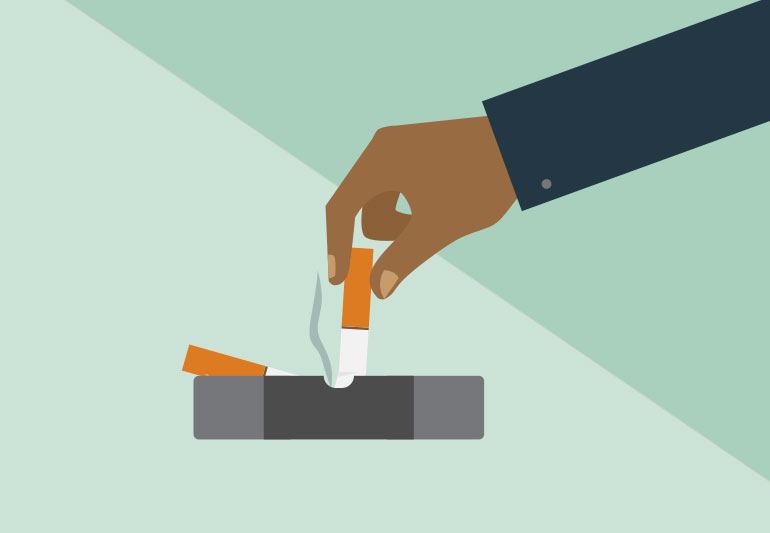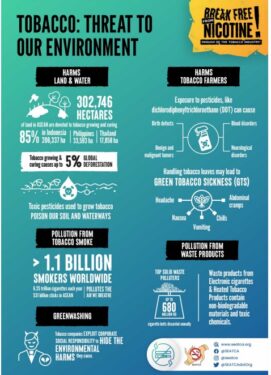THE tobacco industry has known for decades the problem of plastic filters in its cigarettes and packaging but has never owned up to the pollution, waste and damage to the environment, lamented a regional non-governmental body.
Worse still, the Southeast Asia Tobacco Control Alliance (SEATCA) revealed that newer electronic smoking devices add even more waste and exacerbate harm to the environment with discarded plastic, metals, batteries and chemical residues.
Rather than admitting to the pollution, SEATCA said the tobacco industry masks its harms to the environment and health by conducting tokenistic and fake corporate social responsibility (CSR) activities.
These greenwashing activities may take the form of donations to sustainability initiatives or reporting on self-serving environmental standards.
“Charity and CSR activities sponsored by the tobacco industry are a dangerous distraction to cover up the serious harms tobacco causes to the environment and the health of people. These should be banned, and the industry should be penalised,” SEATCA’s executive director Dr Ulysses Dorotheo pointed out.
To put SEATCA’s concerns in perspective, nearly all cigarettes have single-use plastic filters which provide no health benefit but mislead smokers into thinking such filters reduce health harm.
When discarded after use, cigarette filters leach toxic chemicals into the land and marine ecosystems and harm marine life and biodiversity. Over one third of cigarette butt litter ends up in the ocean.
Every year, 340 to 680 million kilogrammes of cigarette butt litter are collected, topping the list of most common types of rubbish during coastal clean-ups in the ASEAN region. It will cost a staggering US$6.4 bil annually to offset the pollution and waste of more than 531 billion sticks.
Below are some solutions proposed by SEATCA to governments in the ASEAN region:
- Ban filters in cigarettes as they are useless and made of plastic.
- Ban electronic smoking devices and phase out traditional tobacco products.
- Apply an environmental tax (in addition to excise tax) to pay for the environmental costs of tobacco production, consumption, and clean-up of tobacco waste products.
- Ban tobacco industry sponsorships, including CSR.
- Set an end date for tobacco sales to protect our future generation.
On a broader scale, SEATCA said the damage tobacco inflicts on human health and the environment is phenomenal. Globally, it claims 8 million lives annually while trashing the environment in the process. Over 6.25 trillion cigarettes are smoked worldwide every year.
This is in addition to the tobacco smoke that contaminates our air with various toxicants, carcinogens and pollutants, the toxic fertilisers and pesticides that poison our land and water, and the massive cutting of trees to produce cigarettes. – June 5, 2022











